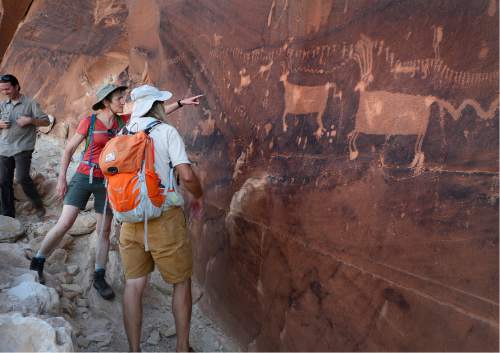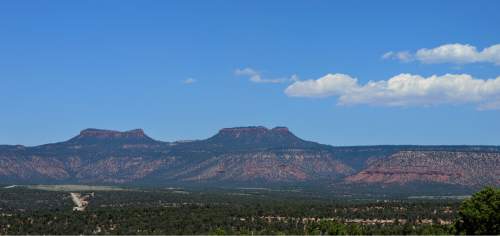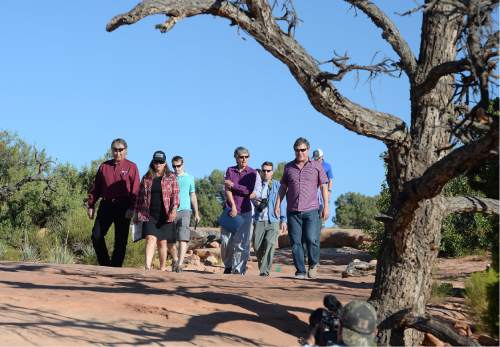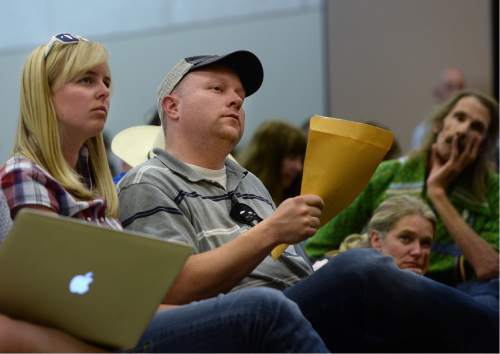This is an archived article that was published on sltrib.com in 2016, and information in the article may be outdated. It is provided only for personal research purposes and may not be reprinted.
Gov. Gary Herbert says he fully backs legislation by two Utah congressmen to preserve parts of the Bears Ears region as a top Herbert aide attempted to clarify comments he made that there might be a better solution.
Cody Stewart, Herbert's policy director, spoke at a public meeting in Bluff on Saturday about efforts to protect millions of acres in southeastern Utah and suggested that it might be worth setting aside both the proposal of a national monument, as well as legislation by Reps. Rob Bishop and Jason Chaffetz to preserve some areas and open others to development.
There might be another option, he hinted.
"We have four or five months," Stewart, a former Bishop aide, told the crowd. "We can do it."
The comments suggested that perhaps the governor's office wasn't fully on board with the Public Lands Initiative, a bill three years in the making that had originally sought to bring all sides together to find consensus on setting aside parts of the region for protection and openly other swaths for development.
But Herbert this week rejected any notion of starting over — "heavens no," he said — and that the legislation introduced last week is the best path forward.
"We've spent three years to get to this point," Herbert said in an interview. "Rather than starting over, we'd be better amending here or there and making some modifications."
Stewart said that he only had two minutes to make his comments and was trying to play a peacemaker role in the somewhat divisive hearing between a pro-monument faction and others with their own ideas about what to do with Bears Ears, an area sacred to Native Americans but also potentially rich in mineral reserves.
Stewart said his intent was to point out that while the sides appear polarized, they are actually much closer to their goals than they think, and perhaps, if they just focused on common ground and not specific legislation, they'd be able to achieve compromise.
He believes his comments were misunderstood.
"Gov. Herbert's support for the PLI is unwavering," Stewart said this week. "He has worked with Utah's congressional delegation on this legislation for many years and is committed to seeing it become law."
The governor, Stewart added, also is willing to explore any option that will prevent President Barack Obama from using unilateral authority under the Antiquities Act of 1906 to name a new national monument covering nearly 2 million acres, as some tribal leaders and environmentalists have urged.
Obama has named several national monuments during his tenure and has promised to take additional action if congressional measures continue to stall.
Interior Secretary Sally Jewell, who participated in the public hearings last week and explored the area in question, has said that the administration wants to gather input from residents and interested parties and had long been asking Bishop and Chaffetz to unveil their legislation, which finally was introduced last week.
Tribal leaders and conservation groups quickly denounced the measure as not going far enough to preserve land and ignoring the tribes' request to have a role in managing the area.
For his part, Bishop said he paid no heed to Stewart's comments: "He was just floating ideas."
And the congressman says he will be able to push his legislation through Congress this year while there's no other proposal that could do the same.
"I have plenty of time to do this bill. You don't have plenty of time to start from scratch with another bill," Bishop said. "The worst thing you can do is a monument."









